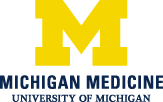By Irene Park, Daily Staff Reporter
Published September 15, 2015 – 8:55 p.m.
It’s been a little over a year since the Ice Bucket challenge took the nation by storm. But, at the University and beyond, researchers are still feeling the tingle.
Following one of the nation’s largest charitable fundraising drives outside of a natural disaster or emergency, the ALS Association — the primary benefactor of the initial social-media movement — is well on its way to distributing the $115 million raised since last summer. (By comparison, the charity brought in $5 million during the same period in 2013, the year before the Ice Bucket Challenge went viral.)
Stephen Goutman, assistant professor of neurology and director of the University ALS Clinic, said the Challenge not only raised money to support ALS research, but it also raised awareness of the disease.
“The number of people search for ALS on websites such as Wikipedia skyrocketed,” Goutman said. “Prior to this challenge, many individuals were not familiar with (ALS) and the devastating symptoms associated with it.”
Amyotrophic lateral sclerosis, also known as Lou Gehrig’s Disease, is a progressive neurodegenerative disease that kills nerve cells in the brain and the spinal cord. When the disease kills motor neurons, which connect the brain, spinal cord, and muscles throughout the body, the brain can no longer control muscle movements.
ALS patients in the later stages of the disease become completely paralyzed and experience severe muscle wasting. The inability to control muscles can lead to difficulty swallowing, walking, and breathing. Currently, there is no cure for ALS.
“It is really important to increase the recognition for this disease not only to help strengthen advocacy efforts aimed at improving care for patients, but also to help raise money to fund the much-needed research efforts to find better treatments and cures for this disease,” Goutman said.
The effects are being felt nationwide.
Researchers at Johns Hopkins University credited the Ice Bucket Challenge in helping to raise funds for continued studies. Last month, Philip Wong, professor of pathology and neuroscience at Johns Hopkins, and his colleagues published a study in Science that demonstrated the role of clumps of proteins called TDP-43 in the brain cells of ALS patients.
“Without (the funding), we wouldn’t have been able to come out with the studies as quickly as we did,” Wong told The Washington Post.
The ALS Association has said $47 million of the $115 million raised has been spent or budgeted toward scientific purposes. The Association revealed its full plan on how the money raised from the Ice Bucket Challenge will eventually be spent: $77 million on research, $23 million on patient and community services, $10 million on public and professional education, $3 million on fundraising, and $2 million on external processing fees. Since there is still no cure for ALS, the majority of raised money will be spent on research to find one.
The viral social media sensation has since credited to Pete Frates, a former Boston College baseball player who was diagnosed with ALS in 2012. Since his diagnosis, he was active in advocacy and fundraising for the disease. Frates and his friend, Pat Quinn, who was diagnosed with ALS in 2013, started the challenge — and named the ALS Association as the benefactor — after watching a similar ice-bucket video online.
As of September 2014, there were more than 17 million videos related to the challenge posted on Facebook, which were viewed over 10 billion times by more than 440 million people, according to the Association. Numerous high-profile individuals participated in the challenge, including President Barack Obama (who did not actually do the challenge but made a donation instead), Bill Gates, Mark Zuckerberg, LeBron James, Oprah Winfrey, and Taylor Swift.
Even some University professors accepted the challenge, including Eva Feldman, professor of neurology and director of research at the University’s ALS Clinic, who has performed research on a revolutionary stem cell therapy for the disease.
But, at the peak of its popularity, the movement was met with some criticisms.
Critics voiced their concern about how it was unsatisfactory in meeting its goal of raising awareness about the disease. Jacob Davidson at Time magazine called the challenge “problematic in almost every way,” mainly criticizing how the challenge did little to explain what ALS actually is.
Davidson noted that some people like Ethel Kennedy, widow of Senator Robert F. Kennedy, and Matthew Lauer, host of NBC’s “The Today Show”, participated in the challenge without even mentioning the disease. In spite of its flaws, Davidson also noted that the challenge has done “a lot of good” but should be improved.
Paul Marantz, associate dean and professor at the Albert Einstein School of Medicine, argued on his blog, “The Doctor’s Tablet,” that it is dangerous for the public to think the Ice Bucket Challenge was the reason for a scientific breakthrough in ALS research for several reasons.
“Let us not mislead the public about the significance of individual, incremental steps in the arc of science, nor promulgate the notion that ‘crowdsourcing’ scientific discovery will get us where we need to go,” Marantz wrote.
Regardless, the ALS Association hopes to continue the success of last year’s Ice Bucket Challenge. The charity reintroduced the challenge last month with a hashtag #EveryAugustUntilACure, adopting the challenge as a yearly initiative.
Barbara Newhouse, president and CEO of The ALS Association, said in her statement the initiative would continue every year until there is a cure for ALS.
“Progress is being made when it comes to finding treatments and a cure for (ALS), and we’re so grateful for the support this August and every August until there’s a cure,” Newhouse said.
https://michigandaily.com/section/statement/ice-bucket-challenge-one-year-later

